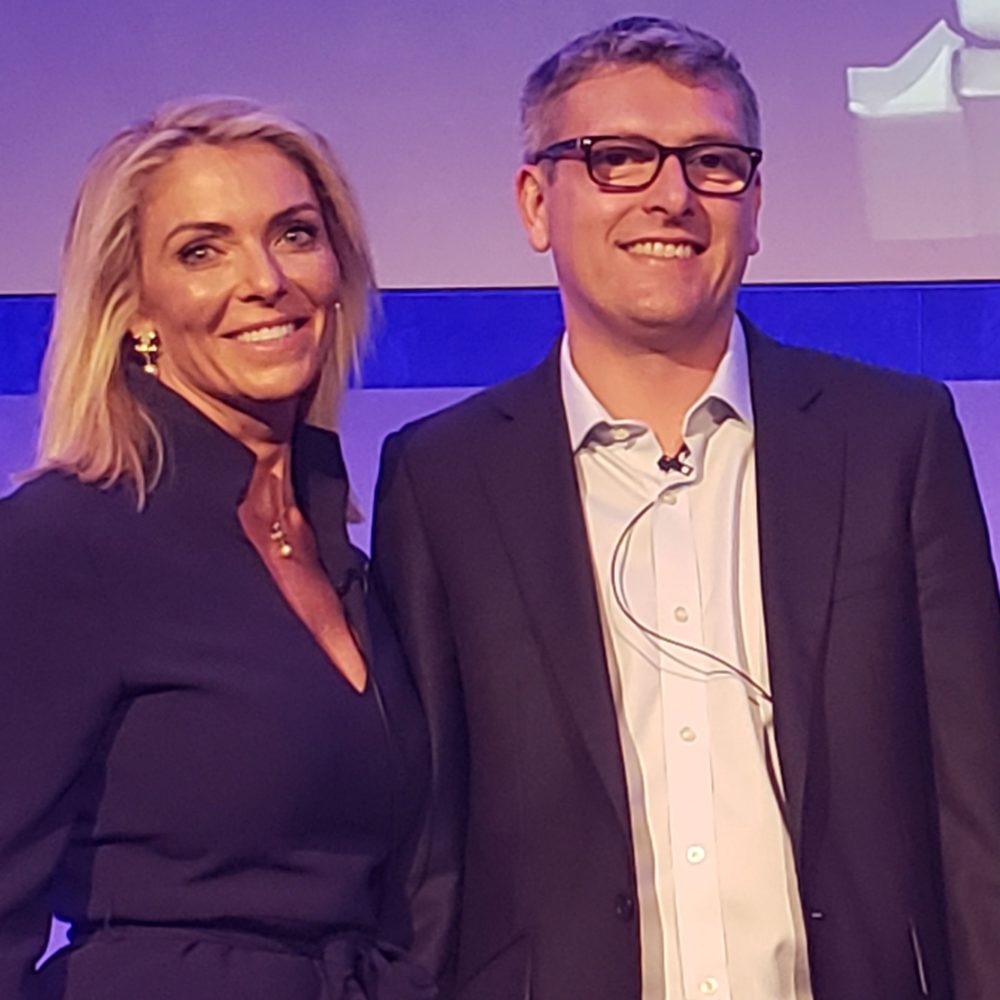With innovation developing so quickly, we don’t know what running a small and medium-sized enterprise (SME) will be like in the future.
Christal Bemont and Dafydd Llewellyn of SAP Concur share their insights on growing tech opportunities for SMEs and how these companies will shape the business world.
How is the small business landscape changing?
Christal: There is a growing population of SMEs – there were 2.2 million in 2000 and this has leapt up in the past couple of years. They’re becoming more mobile, and really starting to adapt to apps.
Micro businesses make up the vast population of these companies; there are arguably 90 million micro businesses around the world.
That means we’ve got two, three, four-person businesses trying to do the same with less. The limitations that they had before were with technology. Now they can do things with apps and cloud-based services that only large organisations were able to do.
Dafydd: But SMEs can be quite worried about implementing technology. They probably read about big projects where it didn’t go right, things were more expensive than they should’ve been, it took ages. There’s a lot of worry out there which has been counteracted by cloud technology.
SMBs are naturally risk-averse too. All of their money goes into growing their business and being successful. They don’t want to re-invent the wheel. They want to take best practices from what big companies have done and adapt it to their space.
“Now SMBs can do things with apps and cloud-based services that only large organisations were able to do”
What skillsets should SMEs be hiring in future?
C: You need hiring data scientists to sit across the community and predict trends. They can call them out and help SMEs avoid risk.
One interesting thing is freelancers. Companies – certainly small businesses – may not need to hire full-time staff. They need this kind of athleticism in small, lightweight ways, only needing freelancers for individual moments in time.
Half the time I go to networking events to find people when I have a need to fill, even if it’s only for a temporary freelancer or sharing skills.
It’s a community coming together to try and help one another where they can get resources because resources are one of their toughest things to deal with. I think It’s the traditional networking of, ‘I’m struggling, I have some questions’.
What are the greatest considerations and risks for SMEs?
C: The people aspect of a company is important – how many people are they hiring and what skillset should employees have? Can they pay competitively?
They need to find more optimal ways to manage their cash flow as well. Their ability to manage their bottom line as effectively as possible accounts for that – they certainly can’t be paying more than they should for anything.
The unknown comes into it, especially for small businesses. They just can’t take on as much risk as bigger companies. It’s the unknown of not being sure what’s around the corner and what other people are doing in terms of expansion.
Bigger companies have to worry about these things too, they just have more tolerance for it.
D: From the companies I talk to, the risk, again, actually comes with growth. There are certain things they can get away with when they’re a five-person company – but as soon as they’re a 20-person, 30-person, 40-person company, the kind of processes that they were used to operating under simply don’t work. The reality is that they can’t do things as manually anymore. If they try it that way, it becomes very unproductive for them.
Their inability to scale their business is because they rely on arcane processes that they had when they started.
SMEs are successful because they’re nimble. They can move faster than a big organisation but then, as they become older, they become less nimble because of things like slow back office processes.
How is SMEs’ struggle to scale affected by external factors?
D: Obviously, there are always going to be macroeconomic factors.
If you can give small businesses technology they can digest in a low-risk way, then irrespective of what’s going on in the economy, they can focus on other things.
In an uncertain market, every penny that spent has to be really thought through so that every bit saved can go back into the business.

Only 68 per cent of VAT is reclaimed because small businesses are frightened of over-claiming. They don’t know all of the intricacies and are worried that HMRC will fine them.
Worry can also come from inefficient systems they have for client invoice – if they don’t pay their vendors on time, they get late payment fees.
There’s also a large chance they’re getting duplicate invoices through. It’s well-known that fake invoices come through as well, where duplicitous companies send low-value invoices and companies just pay them.
When everything runs in an efficient manner, it allows SMBs to grow their business among the uncertainty that might be out there, minimising the amount of money they might be haemorrhaging in smaller ways.
What about the future of SMEs compared to larger companies?
C: It’ll be an evolution. What SMEs will look like in the next three-five years will be surprising.
They will become more powerful than they have ever been, taking the advantage of larger companies. Coupled with the entrepreneurial spirit and resiliency that they have, I think they will become more threaded and more diverse and will be growing faster than ever.
“People won’t know whether it’s a five-person company or a 5,000-person company”
SMEs will become the norm, just like freelancers. It’ll be harder for bigger businesses to be nimbler in response to them.
You’ll have a small company and because of technology that’s available to you, people won’t know whether it’s a five-person company or a 5,000-person company.
SAP Concur is a travel and expense management services and solutions platform. Christal is senior vice president and general manager of SME Global and Dafydd Llewellyn is the managing director of SME for the UK and France.




